Opinion
Overnight sensation known as Oliver Anthony says “I’m not a good musician, I’m not a very good person” as he turns down multi million dollar offer

His real name is Christopher Lunsford. Friends and family just call him Chris. But over the last week or so, millions of people around the world have been introduced to him as Oliver Anthony. That’s because Chris records music under the name of his grandfather, Oliver Anthony, for a youtube channel called RadioWv (Radio West Virginia). Back on August 8, Chris was creating music as a hobby he practiced after work and on days off. But on August 9, a video he recorded for his original song “Rich Men North of Richmond” was loaded on the RadioWv channel. Within hours, Lunsford’s life was turned upside-down.
Chris Lunsford and “Draven” from RadioWv were sure this was a special song and they were hoping maybe something this good could get a few hundred thousands views. Well… 21 million views later, Lunsford has reportedly had to contend with about 50,000 online comments, and consider an 8 million dollar recording contract. Something about this song has touched a nerve.
In case you haven’t heard it yet, here it is on the youtube channel RadioWv. And this is the description put up by RadioWv.
“When I first came across Oliver Anthony and his music, I was blown away to say the least. He had a whole collection of songs that I could listen to for hours. Oliver resides in Farmville, VA with his 3 dogs and a plot of land he plans on turning into a small farm to raise livestock. We have a whole mess of songs set to release of Oliver for your viewing and listening pleasure, he is truly special and notes his biggest influence as Hank Williams Jr. Oliver wants to give hope to the working class and your average hard working young man who may have lost hope in the grind of trying to get by.”
The song is written about the struggles of regular folk in Appalachia, but millions of Americans have adopted it as an anthem for their own lives. The secret sauce behind the success of “Rich Men North of Richmond” certainly has to do with a brilliant title and the haunting melody. But it’s the heartfelt lyrics that strongly challenge political and corporate power structures which seem to be taking the world by storm. It’s kicking up a little storm of controversy too. While many media outlets are calling the song a ‘conservative anthem’, the BBC goes as far as to say the song is “the latest in a series of cultural flashpoints that reflect a deeply divided America.“
As a songwriter, Lunsford has called on a bitter period in his life to come up with lines like these:
“Livin’ in the new world/ With an old soul/
These rich men north of Richmond/ Lord knows they all just wanna have total control/
Wanna know what you think, wanna know what you do/ And they don’t think you know, but I know that you do/
‘Cause your dollar ain’t s**t and it’s taxed to no end/ ‘Cause of rich men north of Richmond.”
Like it or hate it, the song has rocketed to the top of Country Music charts. For his part Christopher Lunsford has made two public statements which are no where near as political as his lyrics. Lunsford recorded the first statement as an update to his sudden success.
Then with the pressure building to address his new audience again, Thursday, Chris Lunsford wrote this thoughtful update on his Oliver Anthony facebook page.
From the Facebook page of Oliver Anthony Music
It will be interesting to see what happens to Chris Lunsford. Certainly at some point soon he’ll accept a contract to make enough money to live a comfortable life far removed from the struggling Appalachian behind “Rich Men North of Richmond”. Millions of new fans affected by his song will hope he never moves too far away.
Energy
Market Realities Are Throwing Wrench In Biden’s Green Energy Dreams
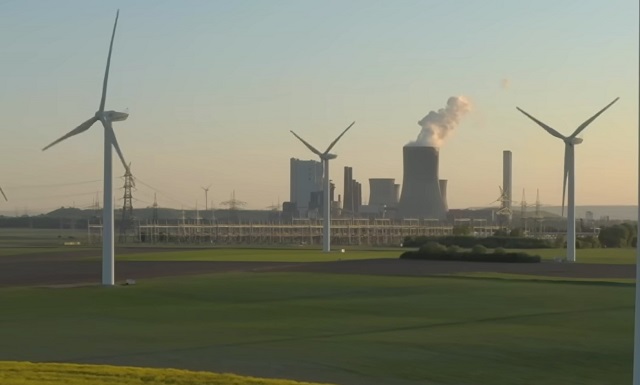
 From the Daily Caller News Foundation
From the Daily Caller News Foundation
For two years now, I and others have been pointing out the reality that there is no real “energy transition” happening around the world. Two new items of information came to light this week that irrevocably prove the point.
It is true that governments across the western world appear to be working to bankrupt their countries by pouring trillions of debt-funded dollars, Euros and British pounds into central planning efforts to subsidize renewables and electric vehicles into existence. That reality cannot be denied. The trouble is that no amount of debt money can turn the markets and the markets aren’t cooperating.
Despite all the government largesse that has spurred major additions of wind and solar generation capacity, those weather-reliant energy sources can’t even keep up with the pace of rising demand for electricity. As a result, the markets dictated that the world consumed record levels of coal, natural gas, oil and even wood during 2023. Yes, we are still burning vast amounts of wood for electricity, despite an alleged “transition” from wood to coal which began 500 years ago.
That is reality, dictated by the markets.
Two new bits of data came to light this week that pound the final nails into the coffin of the narrative around the energy transition. A report in the Financial Times, citing data compiled by Grid Strategies, reveals that the buildout of new high-voltage transmission lines in the United States slowed to a trickle in 2023, with just 55.5 additional miles installed. That collapse comes despite the Biden government’s recognition that a massive expansion of this type of transmission lines must happen to accommodate the demands of any true “transition” to renewables.
The Financial Times quotes a 2023 assessment by the Department of Energy that found that “regional transmission must more than double and interregional transmission must grow more than fivefold by 2035 to meet decarbonization targets.” DOE admits such a pace would add more than 50,000 miles of new transmission in just 11 years, which is almost 1,000 times the pace of adds during 2023. Yikes.
A crucial aspect of that DOE study to understand is that it was conducted before we began to understand the true magnitude of additional power demands that will result from the explosive growth of AI technology just now starting to come to full bloom. It was just this past January, at the WEF Forum in Davos, where OpenAI CEO Sam Altman told the audience he believes generation capacity on the grid will have to double over the next decade just to fill the AI demands alone. That is what is needed in addition to the rising demands for EV charging, industrial growth, population growth and economic growth.
The second piece of compelling data arising this week comes from a Bloomberg story headlined, “Data Centers Now Need a Reactor’s Worth of Power, Dominion Says.” The key thing to understand about this story is that the piece is only referencing the needs of planned new data centers being built in Northern Virginia to feed AI development in that tiny sliver of the United States.
This key excerpt from the story says it all: “Over the past five years, Dominion has connected 94 data centers that, together, consume about four gigawatts of electricity, Blue said. That means that just two or three of the data center campuses now being planned could require as much electricity as all the centers Dominion hooked up since about 2019.”
That is not just rapid growth, it is exponential growth in power demand from a single developing technology.
Demand growth needs such as this aren’t going to be filled by unpredictable, unreliable, weather-dependent generation like windmills and solar arrays. And let’s face it: The United States is not going to be able to continue expanding renewables without finding some way to create a massive expansion of transmission. Why build the generation if you can’t move the electricity?
What it all means is that all the grand Biden Green New Deal plans to shut down America’s remaining coal fleet and much of its natural gas generation fleet are going to have to wait, because the market will not allow them. That’s reality, and reality does not care about anyone’s green transition dreams.
David Blackmon is an energy writer and consultant based in Texas. He spent 40 years in the oil and gas business, where he specialized in public policy and communications.
The views and opinions expressed in this commentary are those of the author and do not reflect the official position of the Daily Caller News Foundation.
ESG
Tennessee Taking Lead In Protecting Civil Rights And Free Enterprise—And Stopping Political Debanking
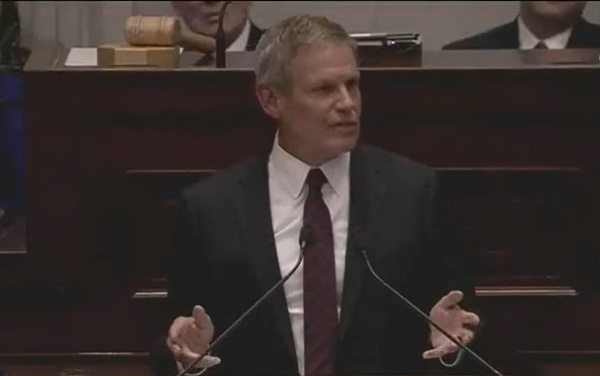
Tennessee Gov. Bill Lee
From the Daily Caller News Foundation
By ERIC BLEDSOE
Last week, Tennessee Gov. Bill Lee (R.) signed into law a first-of-its-kind ban on politicized debanking. Sponsored by Rep. Jason Zachary (R.) and Senate Majority Leader Jack Johnson (R.), HB 2100 will prohibit the nation’s largest banks from discriminating against individuals, businesses, and non-profits for their political and religious views.
The new law is a landmark reform to stop large banks from imposing political litmus tests on Americans.
This legislation (HB 2100) is, of course, a reaction to the trend of the largest financial institutions creating partisan barriers to Americans’ access to financial services. Last year, Bank of America closed the deposit and credit card accounts of Memphis-based non-profit Indigenous Advance Ministries. The organization works with Ugandan widows and orphans to provide for their basic needs through Christian charity. Bank of America refused to give Indigenous Advance a reason why they closed the accounts—just that they no longer wanted to work with their “business type.”
Indigenous Advance’s experience is like what the National Committee for Religious Freedom (NCRF) faced when JPMorgan Chase closed their accounts. NCRF promotes religious liberty for Americans of all religious faiths. Chase said it would restore NCRF’s accounts if it disclosed a list of its donors, told the bank which political candidates it intended to support, and sent them the criteria NCRF uses to decide who they want to support politically. NCRF, out of respect for their donors’ right to privacy, declined.
John Eastman, past attorney for former President Donald Trump, was debanked twice at the end of last year by Bank of America and USAA. Again, the banks provided little to no explanation for the sudden closures. Eastman told the Daily Caller that the banks said it was their policy to not provide any further information. Banks stonewalling their customers on why they close their accounts is alarmingly becoming a pattern.
In December 2022, Wells Fargo abruptly closed the personal and business accounts of Brandon Wexler, a Florida-based gun dealer. The bank’s only explanation was a brief mention that it was due to their review of account risk. Wexler had a personal account with Wells Fargo for 25 years and a business account for 14 years. One instance of an account closing might not be worthy of attention, but more and more examples like these are becoming more common. And the only common thread, besides banks refusing to explain their actions, is that the targets of debanking hold political and religious views unpopular on Wall Street and Pennsylvania Avenue. This does not appear to be a policy at one bank, but an unspoken policy across the industry. Commenting on Wells Fargo’s action against him, Wexler said, “I’ve been with them for 25 years,” […] “I’m a professional fireman. I do everything the right way. It’s messed up.”
But large banks debanking individuals and non-profits is not the full extent of politically motivated financial service providers’ discrimination. In September, Tennessee Attorney General Jonathan Skrmetti sent a letter sent a letter to financial service providers who are signatories to the Net Zero Financial Service Providers Alliance (NZFSPA) warning them that their environmental, social, and governance (ESG) strategies may be in violation of antitrust and consumer protection laws. Both state and federal laws prohibit coordinated or collaborative efforts between corporations to restrict trade or commerce. All members of NZFSPA agree to “(a)lign all relevant services and products to achieve net zero greenhouse gas emissions by 2050 or sooner, scaling and mainstreaming Paris Agreement-alignment into the core of our business.” Though the 27 members of NZFSPA are supposed competitors in the financial services market, their joint commitment to restrict sectors of the economy like fossil fuel is clearly a coordinated effort.
Large financial institutions’ boycott of fossil fuel and discriminatory actions against individuals and non-profits for their religious or political views may seem disconnected at first. But those following the ESG movement won’t be surprised to see these politically motivated efforts across multiple sectors. Last month, Montana Attorney General Austin Knudsen sounded the alarm over these radical policies to Wells Fargo CEO Charles Scharf with the support of 15 other state attorneys general. A member of the Net Zero Banking Alliance (NZBA), Wells Fargo has committed, alongside 143 other banks, to implement ESG policies. In the letter, the attorneys general noted that Wells Fargo has a record of debanking Republican candidates and the firearms industry, imposing race- and gender-based quotas on credit customers, and publicly committing to implement radical climate standards on the energy industry.
Leftist activists realize they cannot accomplish such a radical agenda of eroding individual rights and a free economy through the ballot box. ESG is a political tool that enables the far left to bypass the democratic process to will their worldview onto Americans’ lives. In response, policymakers and other stakeholders must strengthen and enforce civil liberties protections, consumer rights, and antitrust laws, so that political activists cease willing their agenda on citizens.
Fortunately, states like Tennessee are taking the lead in protecting civil rights and free enterprise.
Eric Bledsoe is a Senior Policy Fellow at the Foundation for Government Accountability.
The views and opinions expressed in this commentary are those of the author and do not reflect the official position of the Daily Caller News Foundation.
-
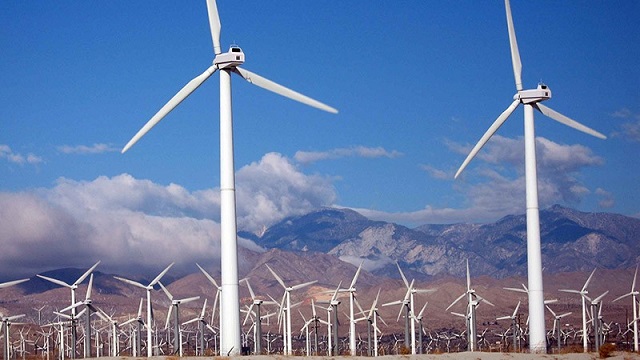
 Economy22 hours ago
Economy22 hours ago‘Gambling With The Grid’: New Data Highlights Achilles’ Heel Of One Of Biden’s Favorite Green Power Sources
-

 illegal immigration23 hours ago
illegal immigration23 hours agoBiden’s DOJ Threatens To Sue Another State For Enforcing Immigration Law
-

 Energy18 hours ago
Energy18 hours agoMarket Realities Are Throwing Wrench In Biden’s Green Energy Dreams
-

 Energy2 days ago
Energy2 days agoBiden Has Taken More Than 200 Actions Against Domestic Oil, New Report Says
-

 ESG20 hours ago
ESG20 hours agoTennessee Taking Lead In Protecting Civil Rights And Free Enterprise—And Stopping Political Debanking
-
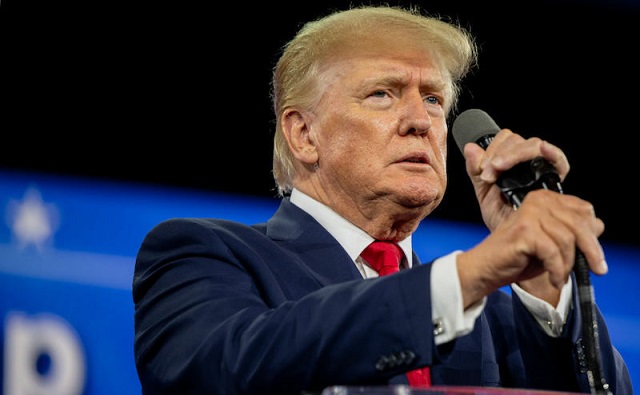
 International1 day ago
International1 day agoTrump campaign says he will pardon Jan. 6 prisoners on ‘case-by-case basis’ if re-elected
-

 Opinion2 days ago
Opinion2 days agoMisleading polls may produce more damaging federal policies
-
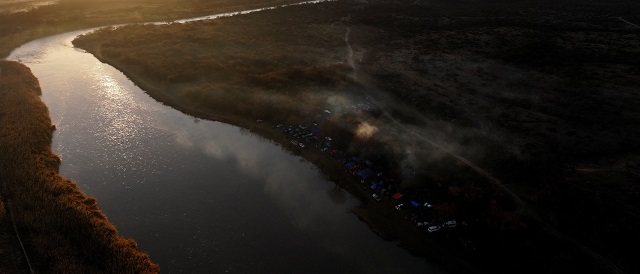
 illegal immigration1 day ago
illegal immigration1 day agoMore Chinese Illegal Migrants Apprehended At Southern Border In Two Days Than In All Of 2021: REPORT








